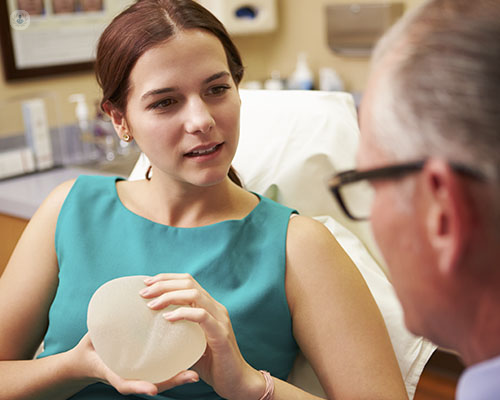Capsular Contracture
What is capsular contracture?
Capsular contracture arises when the body detects a foreign object inside the body and begins to create fibrous scar tissue in self-defence. It surrounds the foreign object like a capsule in order to barricade it from the body and eventually, it tightens and can become quite painful.
Capsular contracture is a common complication of breast implants. This condition is not an indication of the quality of surgery, and even with the most skilled surgeon, this condition can arise. Scarring around the tissue is part of the natural healing process but becomes problematic when it becomes unusually hard.
Depending on the stage of capsular contracture, the resulting scar tissue can be
- Flexible, soft and unnoticeable
- Stiff, hard, tight and painful

Prognosis of capsular contracture
Capsular contracture can be treated and is not life-threatening. Nevertheless, if it’s not treated, the scar tissue will likely progress to become more hard, tight and in some cases painful. It can eventually lead to deformed breasts in those who have had breast augmentations.
Symptoms of capsular contracture
Common symptoms:
- Skin becomes tighter
- Range of motion can become reduced (due to tightness)
- Changes in the shape of the breast
- Changes in the position of the breast
Medical tests to diagnose capsular contracture
A physical examination from a medical specialist can be enough alone to diagnose capsular contracture. MRI (magnetic resonance imaging) scans offer the most insight and give accurate results when making a diagnosis.
What are the causes of capsular contracture?
The formation of fibrous tissue is the natural response to a foreign object inside the body. It can become problematic when the following symptoms cause the tissue to become too hard.
- Hematoma (when blood gathers outside the blood vessels and becomes solid) and seroma (a swelling of fluids in the place of a surgical incision or tissue removal) are rare complications of breast implants that can lead to capsular contracture
- A bacterial infection
- Unfortunate circumstances in which the body simply produces too much fibrous tissue around the implant
Can capsular contracture be prevented?
As capsular contracture is the body’s natural response, there isn’t a way to fully prevent it aside from not inserting a foreign object into it. However, there are methods to lessen the likelihood of developing it should you want a type of implant:
- Massaging the breasts during the healing process after breast augmentation with implants reportedly helps to prevent capsular contracture, but is not proven.
- Stop smoking before and after your surgery.
- Your surgeon may recommend a specific type of implant that has a more textured surface. Smooth implants tend to increase the risk of tissue capsules becoming too tight.
- Your surgeon may place the implant under the pectoral muscle.
Treatments for capsular contracture
Surgery is the surest way to fully treat capsular contracture:
- A capsulectomy removes the hard capsule of tissue. In some cases, the implant may be removed as well, or it may be replaced.
- A capsulotomy is performed when the capsule isn’t removed but is actually sliced with small incisions in order to allow it to expand and give the implant space to move around a bit more.
Your surgeon will discuss the most suitable treatment with you and help you to make a decision based on your needs.
Surgery is not always necessary, however, and other methods exist which have the potential to help the skin of the capsule become less stiff and uncomfortable:
- Massage
- Ultrasounds
- Medications and vitamins - discuss medications and vitamins with your doctor before taking any
Which type of specialist treats capsular contracture?
Plastic surgeons are highly skilled at inserting, adjusting and removing implants. They will be able to assist you with all queries and procedures regarding capsular contractures.

